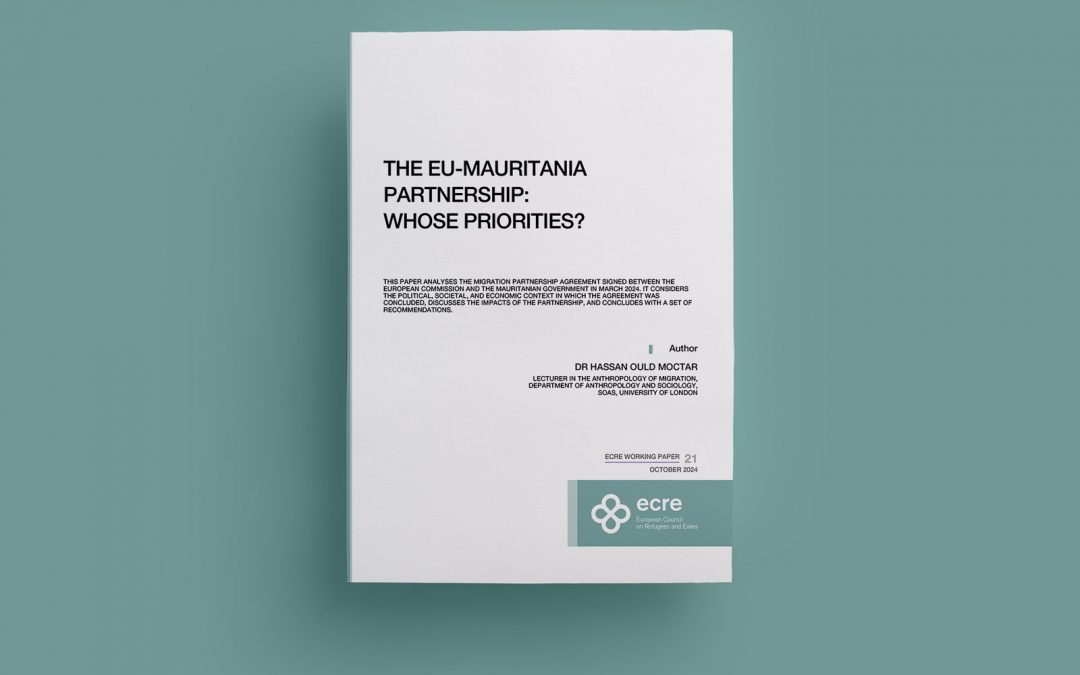ECRE has published a working paper on the EU-Mauritania migration partnership agreement (the ‘Partnership’) which was signed by the European Commission and the Government of Mauritania in March 2024.
The working paper, entitled ‘The EU-Mauritania Partnership: Whose Priorities?’ was written by Dr Hassan Ould Moctar from the University of London. It provides an analysis of the Partnership which is structured around five “priority areas”:
- Socio-economic opportunities for young people to facilitate social cohesion
- Protection and asylum
- Legal migration and mobility
- Irregular migration, smuggling of migrants, trafficking in human beings, return and readmission
- Border management, surveillance and control
The working paper illustrates how the dynamics of the negotiations that preceded the signing of the Partnership suggest a restructuring of relations between the EU and Mauritania, one that is driven by both political concerns about migration in Spain, and the shifting geopolitical landscape in the Sahel region. It also describes the negative consequences of the Partnership for migrants and asylum seekers in Mauritania, as well as for social cohesion more widely in the country, and highlights the futility of a method for responding to irregular migration that has been tried and tested for almost 20 years with precious little success.
The working paper begins with a brief contextual overview which covers Mauritania’s politics, society and migration profile, followed by the history of EU-Mauritanian co-operation in the area of migration and the country’s broader relations with the EU. The second section covers the Partnership itself with a focus on five impact areas: migrants and sea departures, loss of life at sea, the international protection landscape, social cohesion in Mauritania and EU-Mauritania relations. The final section includes recommendations on both immediate-term measures that might harness the Partnership’s potential benefits and offset some of its harmful effects, and more long-term solutions that might address the structural underpinnings of what is demonstrably a counter-productive approach to irregular migration.
The working paper is available here.

